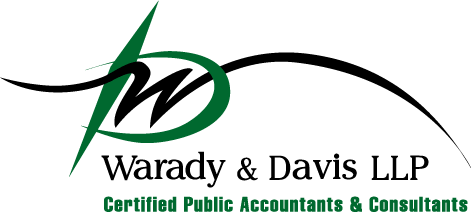Business owner who took a forgivable loan this year under the Paycheck Protection Program can’t write off certain expenses on their taxes if they expect the debt will be forgiven, according to the IRS and Treasury Department.
The IRS recently released Revenue Ruling 2020-27 and Revenue Procedure 2020-51 to clarify the rules for deducting expenses paid with PPP funds. Here’s what you need to know.
Some background
Generally, applicants are eligible for loan forgiveness if they use at least 60% of the proceeds on payroll costs. Businesses that fall short may be eligible for partial forgiveness.
Earlier this year, the IRS said that while forgiveness of the loan would be tax-free, borrowers would be unable to deduct their expenses. In May, IRS notice 2020-32 stated that “no deduction is allowed for an eligible expense that is otherwise deductible if the payment of the eligible expense results in forgiveness of the covered loan.” That meant that a loan that was supposed to be excluded from income was now getting brought back in through the back door. In other words, you get the benefit of the money, but you can’t deduct payments for expenses such as payroll, rent, interest on covered mortgage obligations and any covered utility payments. That effectively increases net business income.
Though the program generated plenty of interest – more than 5 million loans were approved, accounting for $525 billion – questions have lingered on whether small businesses would be allowed to claim deductions for costs covered by PPP funding.
The latest guidance
The IRS and Treasury action seems to resolve the question of deductibility of forgivable PPP expenses.
Businesses that received forgiveness or “reasonably believe” their loan will be forgiven in the future may not deduct those costs – whether they have filed for forgiveness or not, the agencies said.
Permitting both tax-free forgiveness and deductibility would be a double benefit, the agency concluded.
The Ruling gives two examples. In one, the taxpayer (designated as B) hasn’t applied for forgiveness by the end of 2020 (which will be the case for many) but has satisfied all of the requirements under the CARES Act and expects to apply for forgiveness in 2021. The rule states “at the end of 2020 B both knew the amount of eligible expenses that qualified for reimbursement in the form of covered loan forgiveness and has a reasonable expectation of reimbursement.” Because that reimbursement of the loan was “foreseeable,” B may not deduct her eligible expenses.
No forgiveness? You may deduct
While the IRS won’t permit applicants to take both forgiveness and a tax deduction, the IRS also said business owners whose PPP loans aren’t forgiven may be able to deduct their expenses.
In that case, filers can take the write-offs on their returns for 2020 or 2021.
The Rev. Proc. provides a safe harbor which allows taxpayers to claim a deduction in 2020 if:
- The eligible expenses are paid or incurred during the taxpayer’s 2020 taxable year
- The taxpayer received a PPP loan and at the end of the year the taxpayer expects the loan forgiven in a taxable year after 2020, and
- In that subsequent taxable year, the taxpayer’s request for forgiveness is denied or the taxpayer never requests forgiveness.
Under the above scenario, the taxpayer is allowed to deduct expenses originally thought to be non-deductible on a timely filed return or can amend the return in the taxable year.
Sums that aren’t forgiven must be repaid. PPP loans have an interest rate of 1%. Generally, loans issued before June 5th mature in two years, while those issued after that date mature in five years.
Congressional Pressure
Lawmakers on both sides of the aisle disagreed with the recent IRS ruling and have proposed legislation that would permit the write-offs, The Small Business Expense Protection Act of 2020. In addition, lawmakers said they are working to include language in year-end legislation clarifying that taxpayers qualify for expense deductions even if their loans are forgiven. That could be included in government spending legislation that Congress must pass by Dec. 11 before federal funding runs out.
There is also the possibility that Congress may tackle the issue in another Covid-19 relief bill. When that will happen is still uncertain, as lawmakers have spent most of the year fighting over the next round of aid.
Waiting might make sense
Like most PPP guidance, the new clarification creates more questions, and with the end of the year fast approaching, the vast majority of borrowers haven’t even applied for forgiveness.
The new Rev. Rul. and Rev. Proc. reduce the incentive for taxpayers to apply for forgiveness before the new administration and Congress take power in January. Even with this guidance from the IRS, there’s still a reasonable chance, but no guarantee, that Congress may come up with the legislation to allow the deductibility of forgiven expenses.
Applying for forgiveness
W&D is available to help you with the PPP forgiveness process. From keeping you informed of the latest legislation developments to answering PPP forgiveness related questions, or to full engagements to assist you in preparing your PPP loan forgiveness application, please do not hesitate to reach out. Contact your Warady & Davis advisor or our PPP team at 847-267-9600; info@waradydavis.com.
You can also visit the Warady & Davis LLP COVID-19 Resource Center for a wealth of information on stimulus assistance, new legislation and much more. This information is updated regularly.
